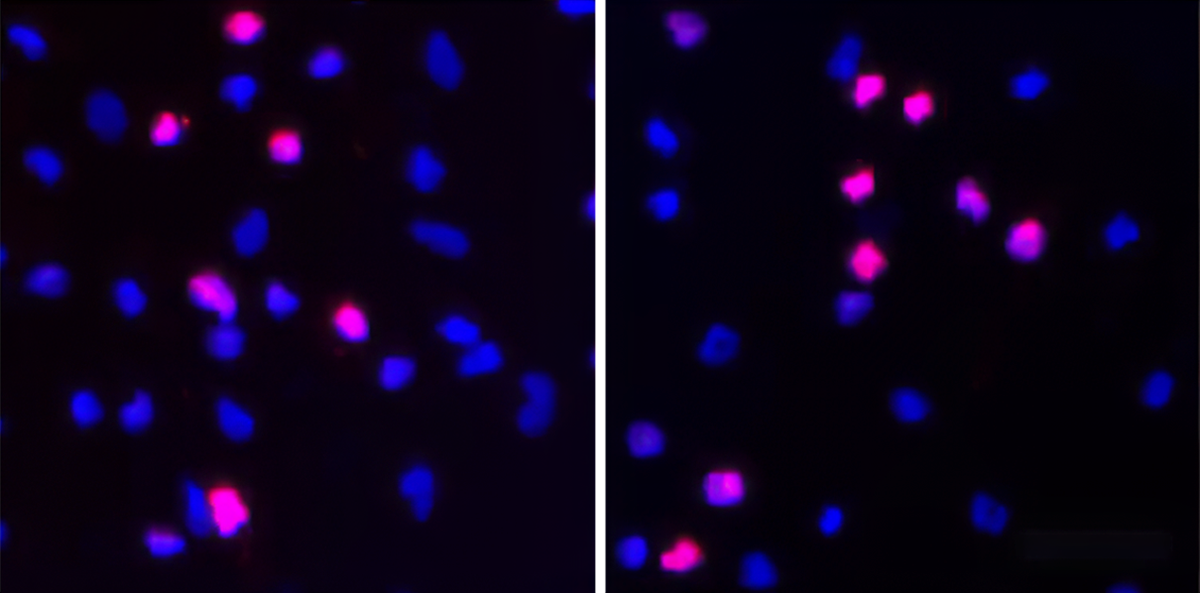- Mice missing one or both copies of the gene CDKL5, which causes CDKL5 deficiency disorder in people, display autism-like traits as early as 2 weeks of age. Autism Research
- Sensorimotor skills in infants predict self-regulation skills at 12 to 15 months old, and self-regulation skills in infants with autistic siblings predict autism traits at age 3. Developmental Science
- Autism-linked genes can converge on downstream targets, and convergent effects are more prominent in mature glutamatergic neurons than in neural progenitor cells or GABA-ergic neurons, according to a preprint. bioRxiv
- Microglia grown from an autistic person’s stem cells and missing the autism-linked gene NRXN1 actively release the proinflammatory cytokine IL-6 and fail to form functional neuronal networks. Brain, Behavior, and Immunity
CDKL5 gene; cerebrospinal fluid; drug combo for fragile X syndrome
Here is a roundup of autism-related news and research spotted around the web for the week of 16 September.
By
Jill Adams
17 September 2024 | 2 min read

Uncurbed growth: Microglia missing the NRXN1 gene (right panel) proliferate more (pink stain) than control cells (left panel).
- Some alterations in resting-state electroencephalograms are shared between people with autism and those with fragile X syndrome, whereas others distinguish the conditions. Journal of Neurodevelopmental Disorders
- “The complexity of the 16p12.1 deletion and other genomic disorders calls for personalized medicine approaches that fully account for individual-level phenotypic presentation, family history, and genome-wide variant profile towards counseling, management, and potential treatment.” medRxiv
- The composition of cerebrospinal fluid in embryonic mice is altered in the maternal immune activation mouse model of autism. Journal of Biological Chemistry
- Combination therapy with lovastatin and minocycline decrease neuronal excitability in people with fragile X syndrome, according to a clinical trial. Spectrum covered earlier results with this drug combination in 2018. Autism Research
tags:
Recommended reading

New organoid atlas unveils four neurodevelopmental signatures
By
Diana Kwon
17 December 2025 | 4 min read
Explore more from The Transmitter
Snoozing dragons stir up ancient evidence of sleep’s dual nature
By
Lauren Schenkman
29 December 2025 | 0 min watch

The Transmitter’s most-read neuroscience book excerpts of 2025
By
The Transmitter
24 December 2025 | 2 min read

Neuroscience’s leaders, legacies and rising stars of 2025
By
The Transmitter
24 December 2025 | 2 min read
Cite this article:

